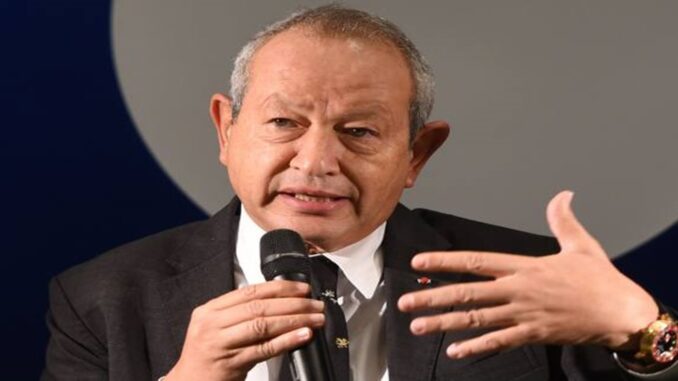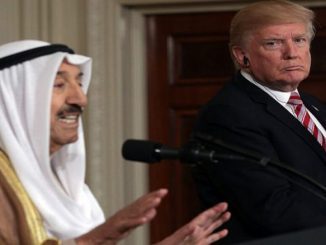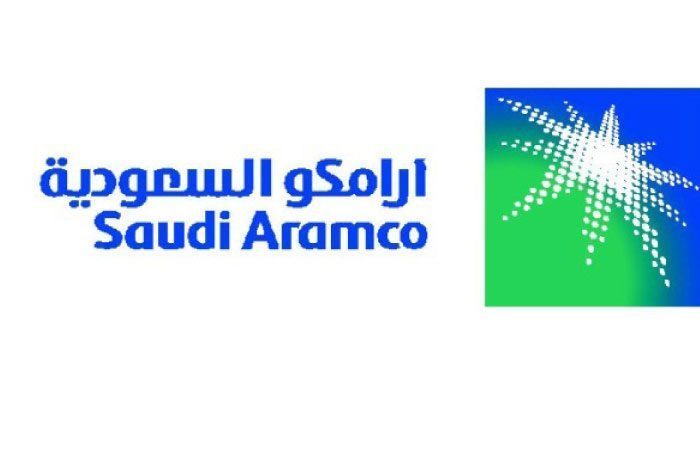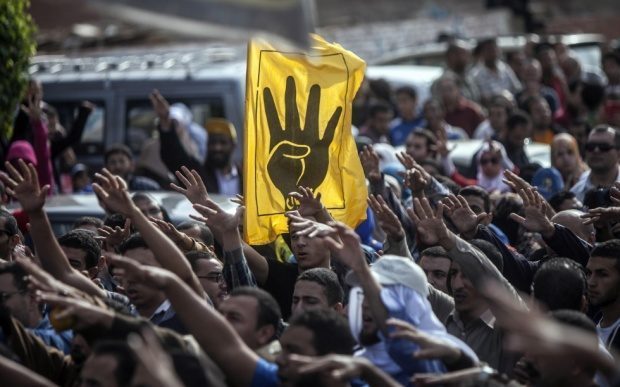
Egyptian multi-billionaire and business tycoon Naguib Sawiris says involvement of state and army companies in business makes it unfair.
Naguib Sawiris has warned that the government’s involvement in the private sector creates unfair competition and an unequal playing field.
“Government-owned or military-affiliated companies do not pay taxes or customs. Of course, we can’t do that, so the competition is unfair from the beginning,” Sawiris said, according to AFP.
Naguib Sawiris is one of Africa’s richest men, with an estimated fortune of over $3 billion.
“The state must be a regulator of economic activity, not an owner,” he said. Sawiris warned that the country can’t rely on the “state forever” to keep the economy afloat.
“When I see government firms (in the race), I don’t even bid because it’s not an equal playing field,” Sawiris added.
Since Abdel Fattah al-Sisi took power in 2014, the former army general has embarked on massive national infrastructure projects, with a new capital in the desert as the centerpiece of his urban vision.
The military’s economic reach has grown under his leadership, partnering up with firms such as the Sawiris family’s Orascom.
The army has played a key though opaque role in Egypt’s economy for decades, producing everything from washing machines to pasta as well as building roads and operating gas stations.
No official figures are published about its financial interests.
Egypt’s economy “has been given a push lately because of government spending on infrastructure, such as new highways and the new capital… and the private sector is building these projects,” Sawiris said.
But “you can’t depend on the state forever” to sustain the national economy, the magnate warned.
“There’s still competition from the government, so foreign investors are a bit scared off. I myself don’t even bid when I see government firms (in the race) because it’s not a level playing field.”
Since the 2013 coup, Abdel Fattah Al-Sisi has allocated large areas of land, particularly along the coast, for real estate, tourism and agricultural development. This land is then used for real estate projects for the army.
It is estimated that the Egyptian army owns some 40 per cent of Egypt’s total GDP and owns construction firms, cement plants, hotels and invests in key sectors including tourism.
In June, Al-Sisi allocated two areas of state-owned land in Minya and Beni Suef to the armed forces so they could be used for agricultural purposes.
In 2019 he issued a resolution allocating 47 state-owned islands in the Red Sea to the army on the pretext that it was of strategic military importance.
The islands were used for tourism purposes and were famous dive and snorkelling sites.
At the same time, Egyptian authorities began implementing a 2016 decree which allocated two kilometers of land on either side of major roads in Sinai as property of the Ministry of Defense which was predicted to displace more than 80 per cent of the local population.
The current suffering of the private sector in Egypt is not solely a result of the coronavirus pandemic.
In fact, the biggest issue to its detriment is the militarization of the economy and squeezing the private sector out with unequal competition by the army’s direct involvement in economic affairs, with a corresponding shrinkage of private initiatives.
The Purchasing Managers’ Index (PMI) prepared by IHS Markit revealed its decline to 48.2 points, down from 50.9 points in November 2020, noting that it achieved an average of less than 50 points in the majority of the months since the military coup, which is a significant decline. The 50-point level separates growth from shrinkage.
There was a slight increase in selling prices in December of the same year, and some companies lowered their prices to attract new customers. Despite this, the index saw a decrease.
The frequently repeated growth rate cannot be read in isolation from its components, as it is largely the rate of government spending on bridges and buildings assigned with direct orders to the military, and then a limited number of private sector companies with which the army is pleased, and which work under its command and according to its wishes.
In fact, the economic growth rate does not reflect a change in the structure of economy towards production in general and the manufacturing industry in particular.
Since the 2013 coup, the government rules with an iron fist; there is growing poverty and unemployment; the private sector is being squeezed out; discrimination based on class is common; and the army is diverted from its primary function to defend the nation, and is instead used in production, building and trade with no relation to its military duties and status.
A scion of Egypt’s wealthiest family, Sawiris built his fortune in telecommunications by investing in mobile networks in countries such as Bangladesh, Iraq and Pakistan.
Orascom has the only operating telecoms license in North Korea, building the regime’s sole mobile network Koryolink.
Gambling on freedoms that emerged after Egypt’s 2011 revolution that overthrew long-time autocrat Hosni Mubarak, Sawiris founded the liberal Free Egyptians party.
“We had hope in the youth after the January 25 revolution, but they said they weren’t interested in forming a political party. They were more interested in toppling the regime — and then what?” he said.
“It’ll only come back, and that’s what happened.”
Sisi has been criticized over his heavy-handed rule, with human rights organizations decrying a crackdown on dissent.
However, Sawiris was coy about commenting on the current political scene.
An avid Twitter user with over 7.5 million followers and a penchant for controversy, Sawiris says he has started to slow down.
But the cinema-lover, who co-founded Egypt’s El Gouna Film Festival five years ago, still has a keen eye for business opportunities.
“I like real estate because there’s a sense of creation,” he said.



